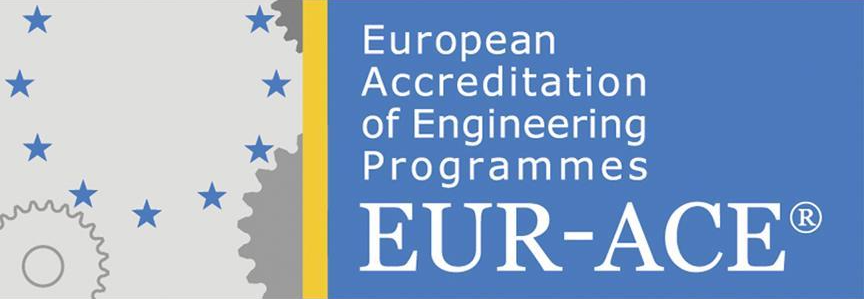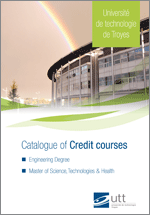Dans la même rubrique
-
- Application procedure
- Academic Programs
- Courses in English
- French as a Foreign Language (FLE)
- Intersemester short programs (August and Jan-Feb)
- Training period in our laboratories
- May-June Summer program
- Arrival advice
- Practical information
- Healthcare and Disabilities
- Accommodation
- Student life in UTT
- About France, Troyes and its region
- Academic calendar
An International university
UTT welcomes many international students as well as international professors and scientists who can take advantage of the exceptional environment.The university has around 25% of international students from undergraduates to postgraduates.
The university is ranked among the top 5 engineering universities.
Exchange programs : a unique experience
Nowadays, engineers must adapt and work quickly in new and multicultural environments.An international experience has become a key point for recruiters and in the professional world. This period of exchange is a good way for students to get familiar with an international environment, to learn a foreign language and especially to obtain additional and complementary competences.
If you are looking for a unique experience abroad for 1 or 2 semesters in a renowned university, the UTT is on top of your list!
The UTT has more than 200 agreements with international renowned universities. Via those agreements, tuition fees are waived for students from those partners who come to UTT for 1 or 2 semesters.
It is also possible to combine a semester of study + a semester of internship during your stay at UTT, the internship being the 2nd semester.
It's also possible to do an internship within one of UTT's laboratories (combined or not with a semester of studies).
Degrees at the UTT
UTT is fully accredited to deliver engineering, master and doctorate degrees.
Engineer
For the engineering degree, UTT provides training in 5 years with its own integrated preparatory class to obtain the French title of engineer, equivalent to the degree of master.

All our Majors are CTI accredited and EUR-ACE labelled.
Majors offered at the UTT:
- Control and Computer Engineering (A2I)
- Industrial Engineering (GI)
- Informatics and Information Systems (ISI)
- Mechanical Engineering (GM)
- Materials Science and Technology (MTE)
- Materials processes and Manufacture (MM)
- Networks and Telecommunication (RT)
Master
The UTT National Diploma in Science, Technology and Health (DNM) is a two-year course.6 tracks :
- Optics and nanotechnologies – Nano-Phot (delivered in English)
- Mechanics, Materials and Advanced Manufacturing Process - MMPA
- Information systems security - SSI
- Systems' Optimization and Security -OSS
- Sustainable and Environmental Management and Engineering - IMEDD
- Global Applied Security Management and Engineering - IMSGA
Fourth class: start in September 2024
BIOREF Erasmus Mundus Master cofunded by the European Union
The Biorefinery Master Programme is a course that has been jointly developed by the University of Lille (ULILLE) in France, the University of Bari (UNIBA) in Italy, the University of Technology of Troyes (UTT) in France and the Tadeusz Kościuszko University of Technology (PK) in Poland. More information here.
Nano-PHOT Graduate School
The Nano-Phot Graduate School (GS) aims at offering an unparalleled programme of excellence, with an international dimension and in direct contact with scientific and socioeconomic stakes related to the use of light, on a nanometric scale and in a sustainable development approach.More information here
Ph.D.
UTT has its own doctoral school (about 180 doctoral students).If you hold the Master's degree and your training course attests your aptitude for research, the Doctoral School n ° 361 "Sciences and Technologies" offers you to carry out your thesis work in one of its different specialties PhD within the Charles Delaunay Institute.
More information on the doctorate at UTT.
The European Credit Transfer System (ECTS)
Since 1990, with the introduction of the ERASMUS program, the European Union has set up the ECTS scheme (European Credit Transfer System) to enable students to validate their periods of study abroad. The ECTS is a system of academic recognition of learning achievements and transfer of credits throughout the EU, providing a way of measuring and comparing academic results and transferring them from one institution to another.The ECTS system is based on 3 main principles: information (on courses available and
students’ results), agreement (between the participating institutions and the students), and the use of Credit Points.
These three core elements are implemented by means of three key documents:
- the information package
- the application form/learning agreement
- the transcript of records
ECTS Grading scale
The ECTS grade is complementary to but does not replace the mark given by the institution concerned. The assessment of a course corresponds to a letter (A, B, C, D, E and F):- A Excellent (10% of students)
- B Very Good (25%)
- C Good (30%)
- D Satisfactory (25%)
- E Pass (10%)
- F/FX Fail
mise à jour le 13 décembre 2024




